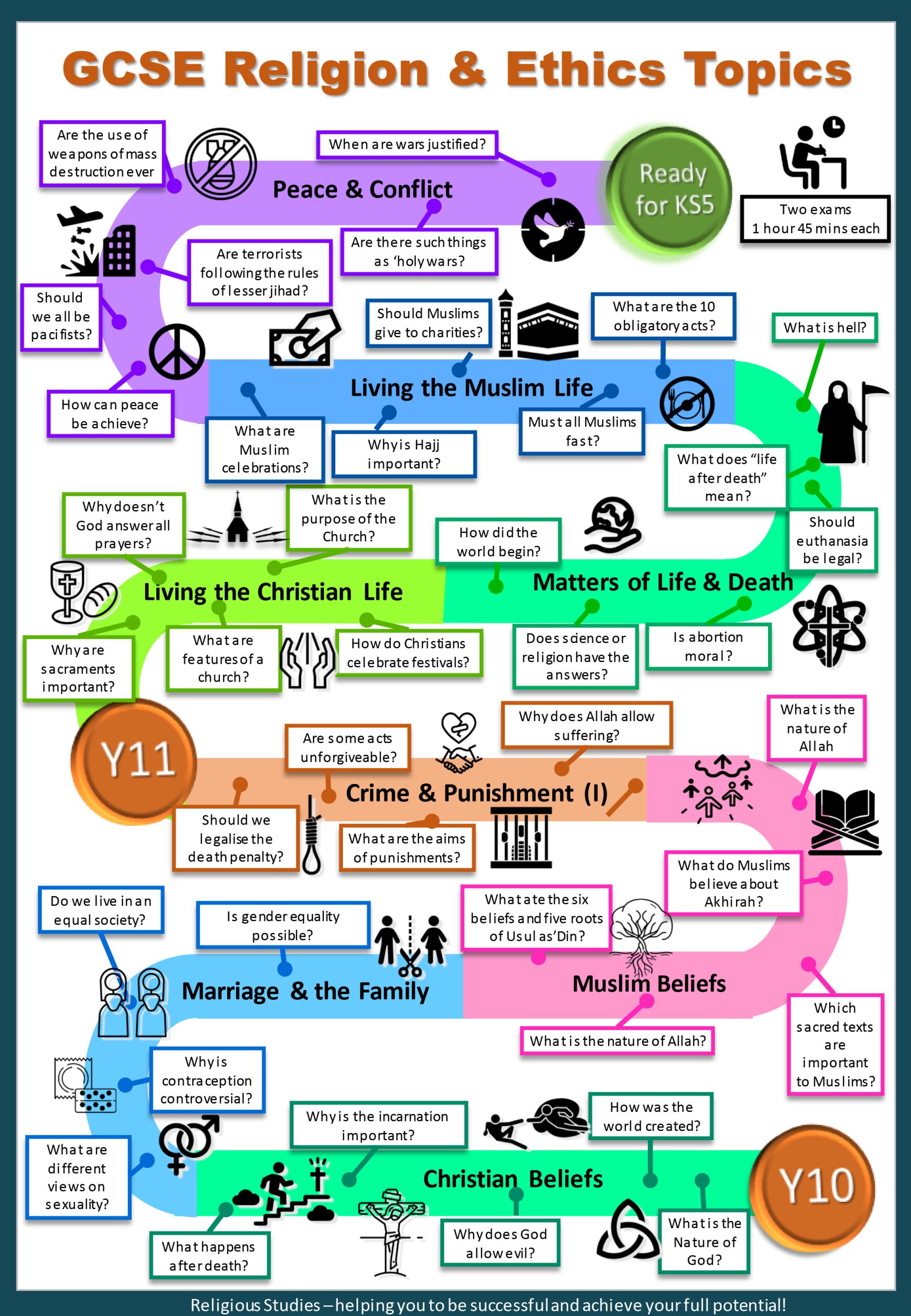RS GCSE
In key stage 4, students follow the Edexcel Religious Studies B course. They complete exams 1B Christianity and 2C Islam.
Details of this specification can be found here
GCSE RS follows the content requirement of Edexcel B specification but goes beyond this through opportunities to ‘take it further’, by highlighting synoptic links, encouraging wider reading and developing hinterland.
The order of the topics has been created to ensure students have sound knowledge of religious beliefs (for Islam and Christianity) and secular views before applying these beliefs to different ethical topics. Vocabulary is taught and emphasised, as well as how to evidence and what sources of wisdom are relevant for GCSE; the focus on such knowledge and skills enables students to access the more profound ethical concepts and apply their knowledge in a way that enables them to form beliefs and create logical chains of reasoning.
Results in RS GCSE are always very positive and reflect the hard work of both the students and RS teachers. Students are supported with opportunities for intervention, excellent revision resources and practical exam skill sessions.
Homework: A variety of activities are set such as; reflections, research, extended answers, past papers and revision using knowledge organisers.
Non-examines RS
The RS pastoral curriculum has been designed using the DfE RE Review, student voice, SACRE curriculum and pastoral consideration. The topics cover a range in religious, philosophical and ethical nature. The same RPE skills as key stage 3 are developed but in greater depth and with a greater emphasis on learning from religion, which is beneficial at this stage in their education and preparation for careers.
Major festivals, ethical dilemmas, careers linking to RPE, philosophical or ethical dilemmas linking to current affairs and world views are taught through form times and drop-down-days. Each year group has a bespoke curriculum planned alongside the Personal Development curriculum. Consideration for cross-curricular learning is engaged and topics of a sensitive nature are taught at the appropriate time in the appropriate ways e.g., a year 10 form may learn about an incidence of religious terrorism focusing on the fundamental contradiction the terrorist has shown between their actions and faith, whereas a year 13 form may focus on the prevalence of religious terrorism in the world and the possible lethal criminal implications, debating what they see as a ‘just’ outcome for the terrorist.
